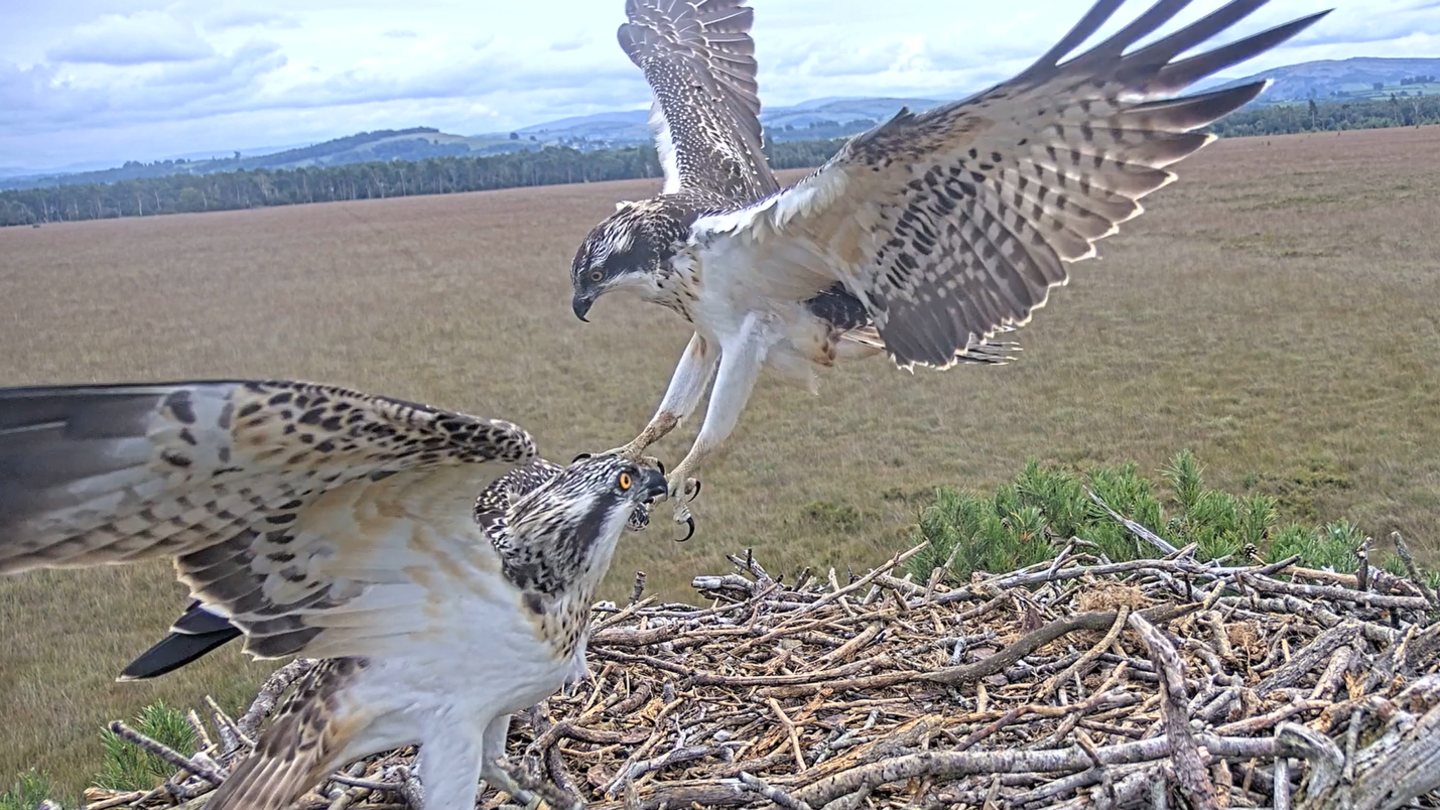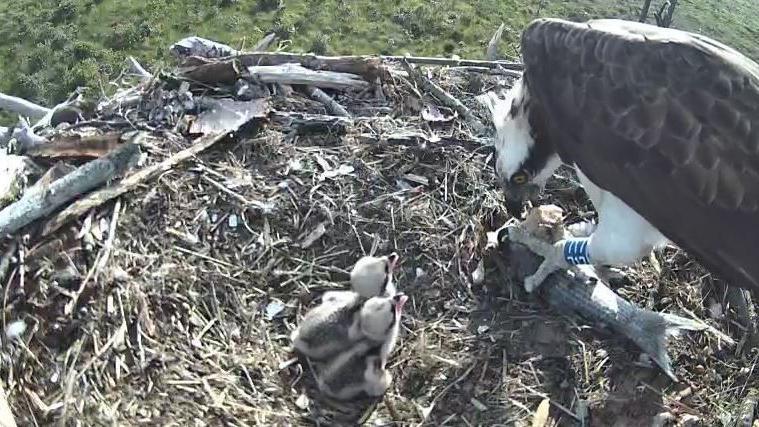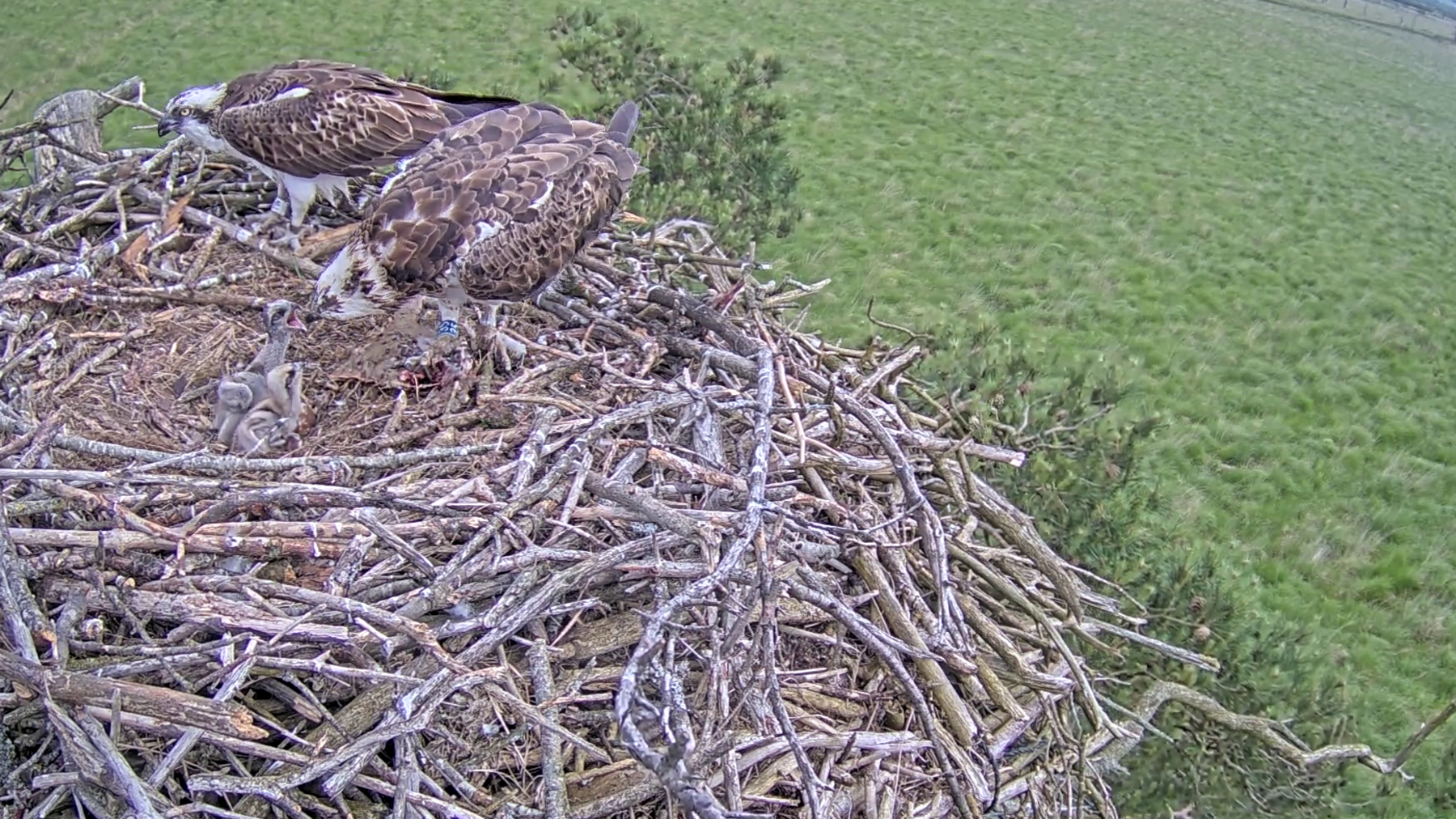Osprey feeding chick not its own 'unusual'

Ospreys are faithful birds, Cumbria Wildlife Trust's Paul Waterhouse says
- Published
An osprey has intrigued conservationists by feeding a chick which is not its own - a behaviour rarely documented.
The male bird, at Foulshaw Moss Nature Reserve in Cumbria, has been seen bringing fish to a chick which officials believe is from a different nest.
Cumbria Wildlife Trust's Paul Waterhouse said it was the first time the reserve had seen an osprey delay its own migration to feed a chick which was not its own.
"This behaviour is unusual," he said. "[Though] it's not unheard of."
Mr Waterhouse said ospreys had been at the nature reserve for more than 10 years.
"We've had over 32 chicks reared at the site," he said.
More than 90% of the ospreys in Cumbria were tagged, said Mr Waterhouse, but the young chick being fed by the reserve's male osprey was not.
That suggested it was from a remote nest, not linked to the wildlife trust but somewhere else in Cumbria, he said.
The healthy chick had probably fledged from its nest this year, he said.
'Birds are faithful'
It now needed to build up energy before it could migrate for the winter, said Mr Waterhouse.
Older ospreys typically postpone their winter migrations until their all young have migrated first.
Mr Waterhouse said the osprey's other chicks had already migrated – most likely to west Africa.
"But our male osprey is staying on...to help this young osprey survive and build up the strength," he said. "It's really, really interesting behaviour."
Mr Waterhouse is relatively certain the male osprey and the chick are not related because ospreys are generally "faithful to their site and female".
"If this male osprey had another nest with a female on it...I think we would know."
The team are expecting the young osprey to be healthy enough to migrate in the next two weeks.
Follow BBC Cumbria on X, external, Facebook, external, Nextdoor and Instagram, external.
Get in touch
Do you have a story suggestion for BBC Cumbria?
Related topics
- Published21 June

- Published5 June 2024
